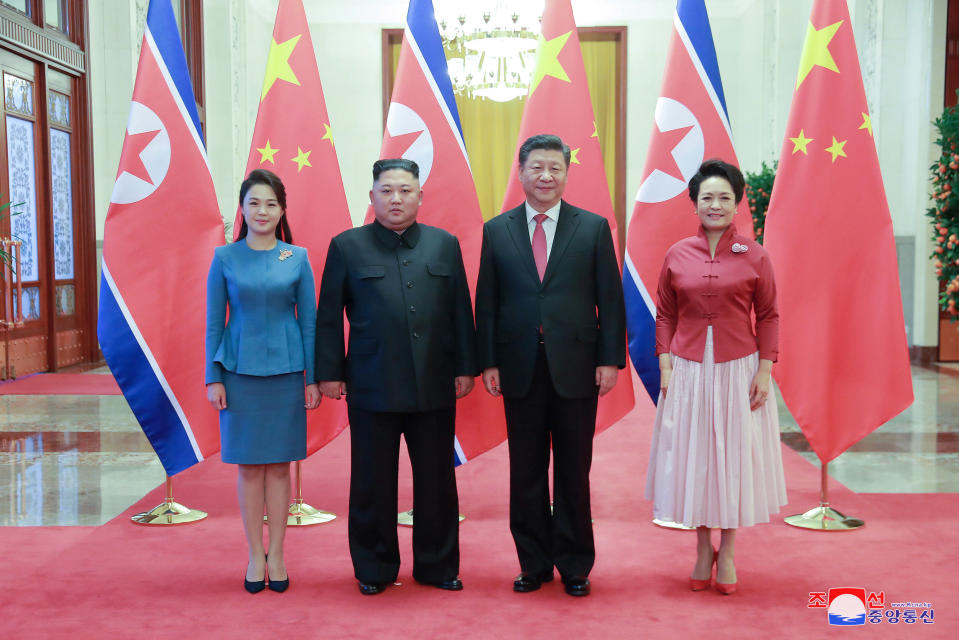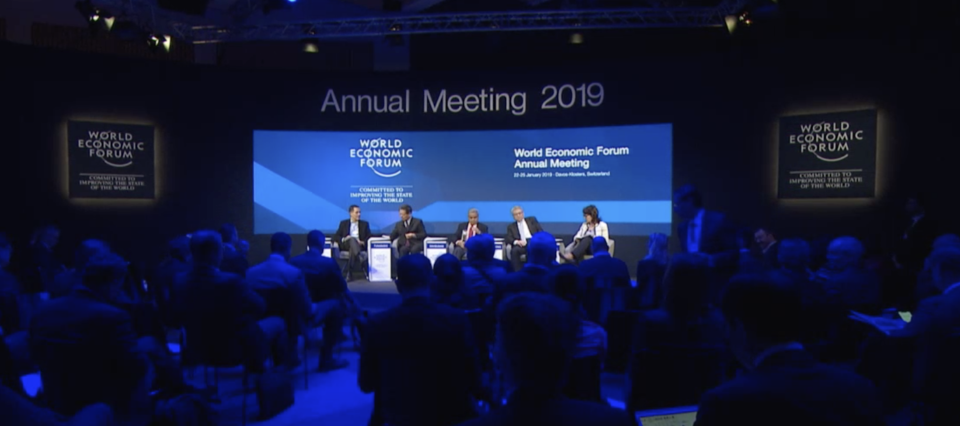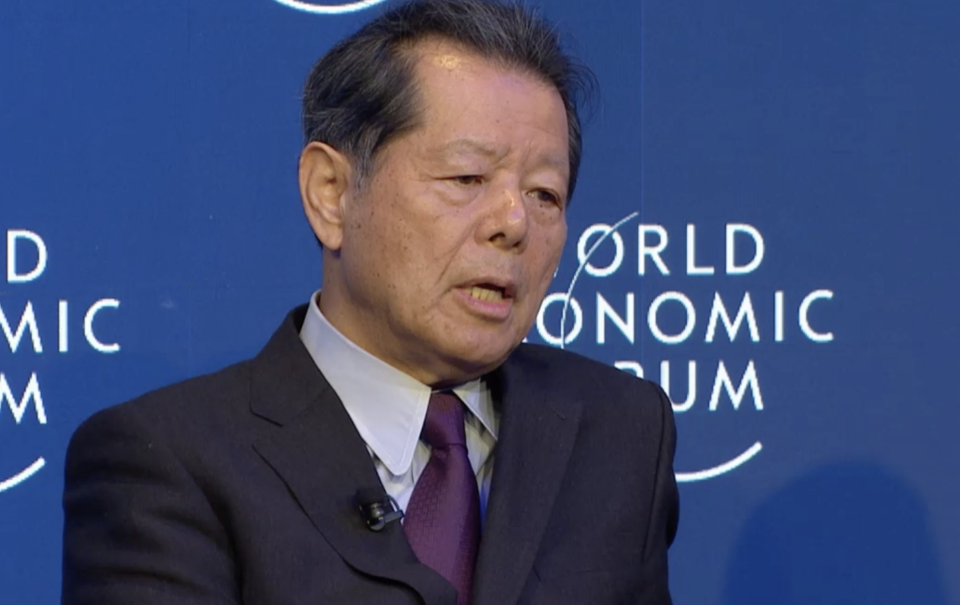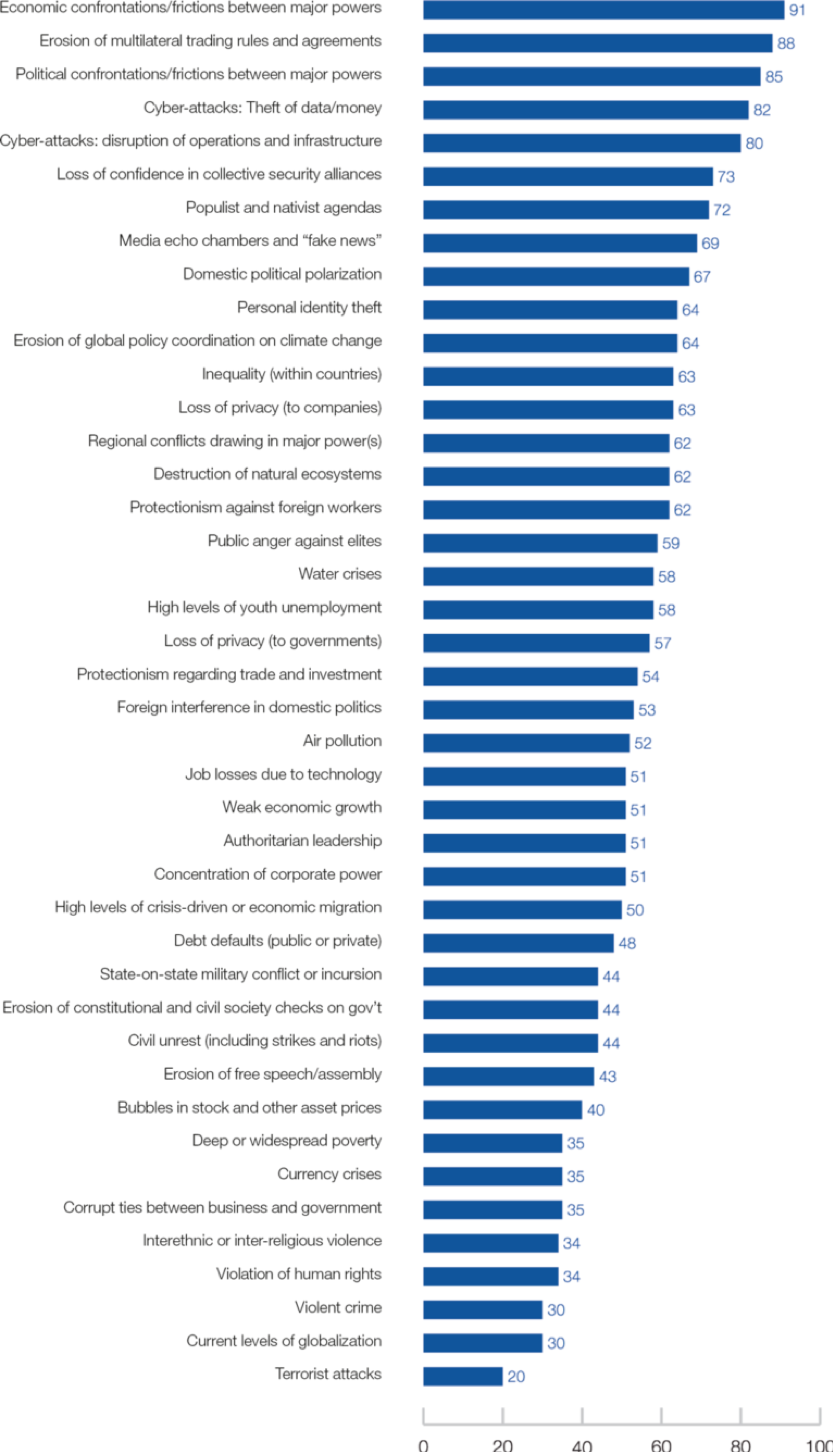'There's a risk North Korea will be used as a bargaining chip in US-China trade talks'

The biggest risk for Japan “remains to be Trump’s presidency” and there’s a heightened risk that North Korea will be used as a “bargaining chip” in US-China trade talks, says Yoichi Funabashi, chairman of the Asia Pacific Initiative, Japan.
Speaking on a panel at the World Economic Forum (WEF) at Davos today (22 January), Funabashi outlined how “President Trump has insinuated that tariffs and numerical targets on autos and auto parts might soon be coming if he doesn’t get his way.
“And if it does happen it could destabilise the relationship between Japan and the US. Also Trump’s aversion and hostility to multilateralism is very much dangerous. For the past 30-40 years, Japan has benefited greatly from the international order and free trade. If that multilateralism further unravels, that would have serious ramifications for Asia.”
Geopolitics is weighing heavily on the global economy and investor sentiment.
The moderator of the panel, Vali R. Nasr, dean and professor of international relations at the Johns Hopkins School of Advanced International Studies (SAIS), USA said, “we are seeing unprecedented change in the level of international order. We’re seeing serious debate on the sustainability of the international liberal order.”

“We’re seeing a change in how the powers approach the utility of trade of multilateral alliances. We’re also seeing significant threats in the areas of crisis from North East Asia to the Middle East,” he added.
This week at the World Economic Forum in Davos, Switzerland, the International Monetary Fund (IMF) said in its latest World Economic Update report, that the global economy is projected to grow at just 3.5% this year and 3.6% in 2020. The outlooks for 2019 and 2020 are 0.2% and 0.1% below the IMF’s projections issued in October.
The IMF said that the ongoing US-China trade war plays a huge part in those projections.
Trump’s administration launched a trade war with China over the last year, slapping $200bn (£155.7bn) of tariffs on Chinese imports into the US, with further threats to impose tariffs on almost $300bn of extra imports in March, including a 25% charge on imported cars.

“Trump’s administration policy to link national security with trade issues actually has really complicated that. Trump has also raised the possibility US forces in Korea could be withdrawn undermining Japan and the US-ROK (Republic of Korea) alliance. This increases the risk that North Korea will be used as a bargaining chip in trade talks between the US and China. That’s clearly an importance for Japan and the broader region,” said Funabashi.
Kishore Mahbubani, senior adviser and professor in the practice of policy, National University of Singapore, added: “At this moment, and for the Chinese, they’re concerned the most about the relationship with the US.”
In WEF’s Global Risks Report 2019 survey released over the last week, executives said they expect geopolitical tensions to increase this year.


 Yahoo Finance
Yahoo Finance 
